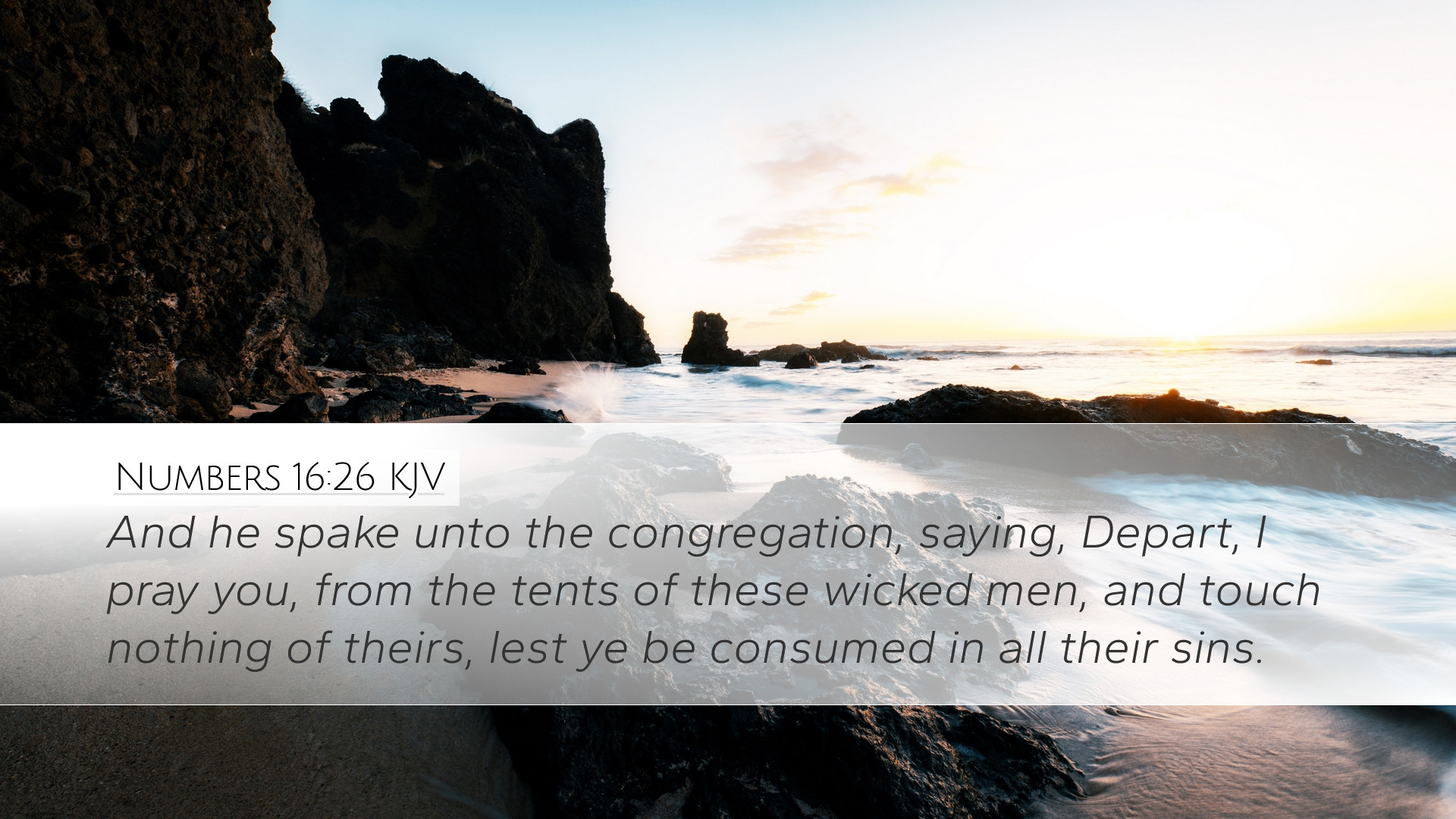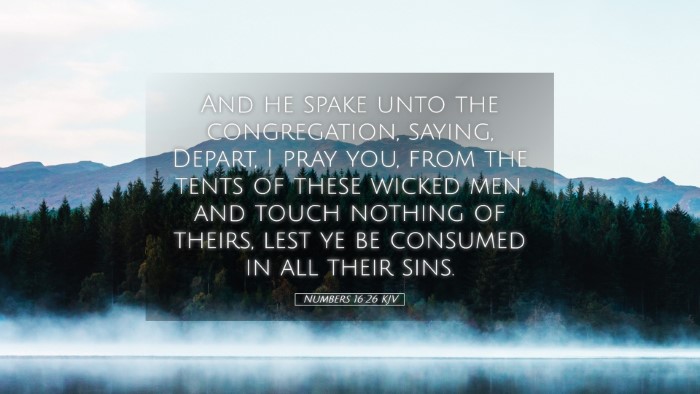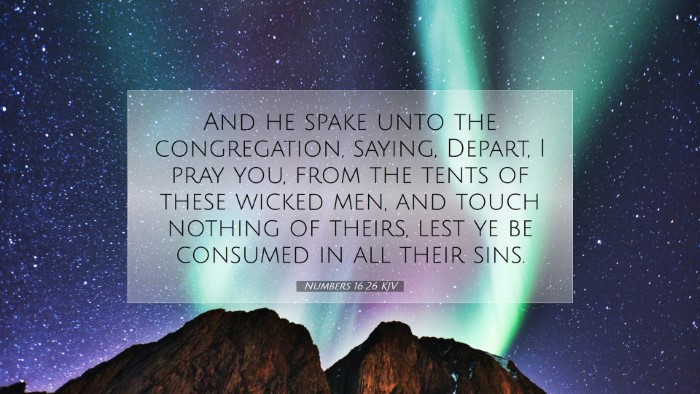Commentary on Numbers 16:26
In Numbers 16:26, we encounter a pivotal moment in the narrative concerning Korah's rebellion against the authority of Moses and Aaron. The verse states:
“And he spake unto the congregation, saying, Depart, I pray you, from the tents of these wicked men, and touch nothing of theirs, lest ye be consumed in all their sins.”
Contextual Analysis
This verse occurs within the broader context of rebellion in Israel, led by Korah, Dathan, Abiram, and others. The tension centers on the challenge to Moses' leadership, and God's appointed order. Here, Moses acts as a mediator, urging the people to separate themselves from the rebellious leaders, which carries both physical and spiritual significance.
Insights from Matthew Henry
Matthew Henry notes the mercy of God in the midst of judgment. Moses’ warning is a demonstration of divine compassion, urging the congregation to withdraw from the sinful influences of Korah and his followers. Henry emphasizes the importance of separation from evil, as the righteous must avoid the destructive consequences of sin.
He highlights that the admonition to "Depart" signifies a call to spiritual discernment and proactive holiness. By distancing themselves from the tents of the wicked, the people reflect a desire for purity and allegiance to God.
Insights from Albert Barnes
Albert Barnes elaborates on the phrase "the tents of these wicked men," attributing a dual significance to the warning. He asserts that the term 'wicked' is not merely a descriptor of moral failure but indicates those who actively oppose God's ordained leaders and His commands.
Barnes makes a critical observation regarding the consequences of associating with sin. He posits that touching the possessions of the rebellious could lead to being 'consumed' in their sins, a concept reflecting the corporate nature of sin within the community of Israel. His explication serves as a stark reminder of the dangers of complacency in the face of spiritual rebellion.
Insights from Adam Clarke
Adam Clarke provides a theological perspective by exploring the implications of Moses' directive. He argues that the call to separate serves as a typological prefigurement of the New Testament principle of being in the world but not of the world. Clarke suggests that this incident foreshadows the believer’s imperative to reject the sins of society while maintaining a presence in it.
Clarke also addresses the moral responsibility of leaders to guide their congregations away from sin. He notes that Moses’ leadership reflects God's character and highlights the necessity of distinguishing between the faithful and the unfaithful for the preservation of the community's holiness and integrity.
Theological Implications
Theologically, Numbers 16:26 invites readers to consider the nature of sin and its contagious effect within a community. The admonition to 'depart' signifies not only physical separation but also a call for spiritual vigilance. As pastors and theologians reflect on this passage, they may contemplate how it applies to contemporary church dynamics, particularly concerning leadership, accountability, and potential divisions within congregations.
- Separation from Sin: The call to depart from wickedness serves as a timeless principle. Believers are challenged to evaluate their relationships and affiliations in light of their commitment to holiness.
- Influence of Leadership: The passage emphasizes the responsibility of leaders to guide their communities away from rebellion and into covenantal faithfulness.
- Collective Consequences: An important theme is the understanding that the sins of some can affect the whole, encouraging communal responsibility and vigilance.
Practical Applications
In practical terms, Numbers 16:26 serves as a prompt for self-examination within the body of Christ. Church leaders must navigate the complexities of both confronting sin while fostering an environment of grace and restoration. Key applications include:
- Discernment: Encouraging congregants to develop spiritual discernment to recognize and avoid influences that lead away from God’s truth.
- Unity in Christ: While maintaining a necessary separation from sin, the emphasis should be on unity among believers, rooted in love and truth.
- Prayer for Purity: Leaders and members alike should continually seek God’s guidance and strength to uphold purity in their lives and congregational practices.
Conclusion
Numbers 16:26 encapsulates a profound lesson on the nature of holiness, the dangers of rebellion, and the role of leadership within a faith community. The insights from Matthew Henry, Albert Barnes, and Adam Clarke collectively highlight the necessity of true discernment, accountability, and the imperative for believers to remain steadfastly committed to God's purposes.
As we reflect on this passage, may we be challenged to heed the call to depart from all that hinders our relationship with God and to encourage one another in pursuing lives of holiness and obedience.


